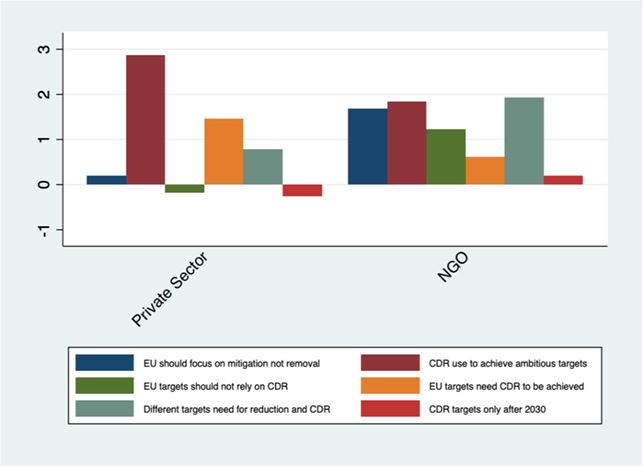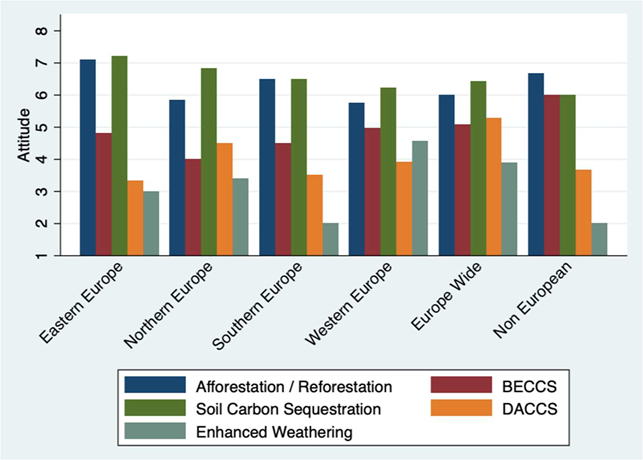NETPs include a vast array of practises and technologies that capture CO2 through biological and/or geological storage, that are currently at different levels of readiness, efficiencies, costs and scalability, leading to differing levels of uncertainty. All of these factors impact on the social aspect of the deployment which is related to the perception and interaction of key stakeholders that ultimately influences decision making. As such wide scale deployment of NETPs remains a contested prospect.
NEGEM project aims to understand the perceptions of different stakeholders in relation to NETPs and their potential role in achieving the European climate targets. To analyse the different aspects of perception – logical/scientific and emotional/moral – a series of five workshops were carried out between June to October 2021, involving more than 100 stakeholders, mostly from environmental NGOs and private sector backgrounds. Each workshop included a pre and post workshop survey to monitor how discussions and framing changed perceptions.
The main results highlighted the deep-rooted differences between stakeholders in the perception of NETPs. NGOs favour ecological solutions over geological ones and have a greater skepticism towards the use of NETPs to reach European targets, whilst the private sector participants are found to be more enthusiastic towards NETPs overall and particularly those that involve technologies that produce industrial co-benefits, such as Bioenergy with Carbon Capture and Storage (BECCS).
The first implication of this result is the differing perceptions of an ideal path to meet climate targets; solely reducing carbon favoured by NGOs versus deployment of carbon capture and storage technology favoured by private sectors. This result may be attributed to the lack of knowledge of new technologies, as such a clear implication for policy is therefore the need to improve awareness of less mainstream NETPs, which may improve their perception.
In addition,differences emerged between different European countries, underlining how homogeneous policies within the European Union could fail not only because of the different economic needs and resources of the territory, but also because of the different degree of acceptance of NETPs in different geographical areas.
Furthermore, the results reveal that interaction and dialogue among stakeholders had an effect in changing stakeholders’ perceptions. It will be important to allow for dialogue between key constituents as this allows for the development and consolidation of stakeholder perceptions and favours their contribution in informing policies.
In conclusion the interaction between different stakeholders and the ensuing dialogue is fundamental to the development of perceptions about NETPs and their potential deployment – perceptions should not be understood as static and crystallised but as dynamic and evolving via discussion.
The next exciting steps for NEGEM focus on triangulating and deepening the results obtained in this series of workshops with other data collections, including interviews with different stakeholders, large pan-European surveys, and analysis of reports from different organisations.


Download the full report: Stakeholder views on NETP governance


